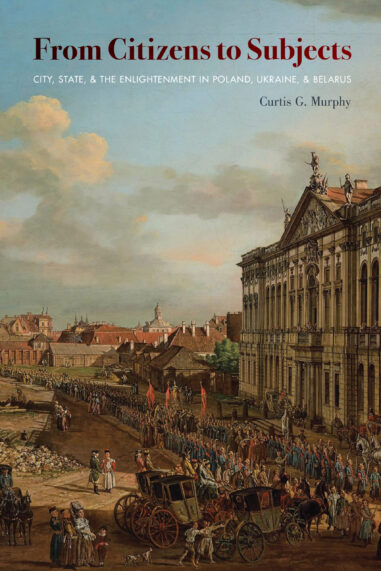

Paperback $55.00
Request Exam or Desk Copy. Request Review Copy
From Citizens to Subjects
City, State, and the Enlightenment in Poland, Ukraine, and Belarus
This ambitious and significant monograph challenges a widely encountered narrative that assumes that enlightened centralizing government brought progress and order in place of the 'archaic' privileges and exemptions that held back urban growth in early modern Europe. Based on a wide range of sources and spanning the traditional Polish caesura of 1795, this is a refreshing work that should also find its place in wider arguments about the efficacy of centralization and decentralization in the modern state.

